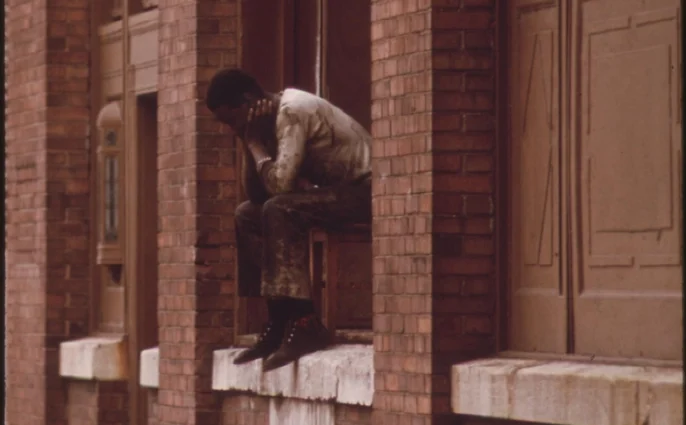The discovery. The confrontation. The devastating fallout. In the wake of an affair, everyone expects noise. They anticipate the dramatic arguments, the tearful pleas, the slammed doors, the very loud, very public end of a relationship.
But what happens when that isn’t your story? What happens when, for reasons only you truly understand, you choose to stay?
Often, the result isn’t more noise. It’s a heavy, profound, and utterly isolating silence.
This is not the silence of peace. It is not the comfortable quiet of a long-term relationship. This is the silence of survival. It is the quiet that descends when the shock is too great, the pain too deep, and the opinions of the outside world too overwhelming to let in. It’s the space between what was and what might be, and right now, it feels less like a space and more like a weight on your chest.
If this is where you are, know this first: your silence is not a weakness. It might be the most powerful, protective tool you have right now. This is about how to carry that weight, and then, how to slowly, deliberately, transform it into your foundation.
The Anatomy of the Aftermath: Why We Retreat
After the affair, the world feels like it’s shouting at you.
Well-meaning friends offer black-and-white advice: “You have to leave him,” or “I could never forgive her.” Society feeds us a narrative that real men get angry, get even, or get out. There’s no script for the man who chooses to stay and fight for something, even if he’s not sure what that something is yet.
Then there’s the internal noise. The mind-numbing cycle of questions with no answers. The mental replays of events you didn’t even know were happening. The anger that feels like a live wire under your skin, and the grief that follows like a tidal wave, threatening to pull you under.
It is utterly exhausting.
So you go quiet. You stop returning texts. change the subject at work. You sit in your car in the driveway for a few extra minutes, dreading the heavy air inside the house. This retreat is not a conscious, strategic decision at first. It is a primal response to emotional overwhelm. It is your psyche forcing a shutdown because the system cannot process any more data.
You are not broken. You are preserving what little energy you have left for the only thing that matters: getting through the next hour, the next day.
The Misunderstanding of Silence
We are taught, especially as men, that communication is the solution to everything. “Talk it out.” “Express your feelings.” And while there is a time and place for that, forced communication in the immediate aftermath of the affair is like trying to perform brain surgery on yourself while the building is on fire.
The pressure to perform your grief, to articulate the inarticulable, to have a plan—this is a trap. It forces you to use your energy to manage other people’s expectations instead of healing your own wounds.
Your silence is mistaken for stoicism or denial. But you and I know it’s neither. It is containment. It is the act of building a temporary wall around the construction site so the real, messy, internal work can begin without prying eyes and unsolicited advice.
This is your job right now: to protect the site. To honor the quiet. To reject the pressure to have it all figured out.
Reclaiming the Void: How Silence Becomes Strategy
So how do you turn this deafening, suffocating void into something useful? How do you change the silence from a prison into a sanctuary?
It starts with a simple but profound shift in perspective. You must stop seeing the quiet as an empty space and start seeing it as a cleared space.
This is your workshop. Your training ground. It is stripped bare of distractions, and that is its gift. In here, you are not who you were, and not yet who you will become. You are in the messy, painful, and powerful process of becoming.
Here is what you can do in this space, on your own terms:
1. Listen to Your Internal Weather.
Forget the big, overwhelming questions for now. Start small. Several times a day, just check in. Don’t judge it, just name it. Is it a hurricane of rage in there? A cold, gray fog of sadness? A strange, calm moment of clarity? This is not about fixing it. It is about acknowledging it. This simple act of self-acknowledgment is a radical act of self-care. It is you telling yourself, “I see you. I feel this too. We are here together.”
2. Identify the Triggers Without Judgment.
In the quiet, you start to notice what pulls you out of it. A song on the radio. A certain street. A date on the calendar. A phrase. These triggers are landmines. Right now, they explode without warning. But when you are in your silent space, you can slowly, carefully, start to map them. You can’t defuse them all at once, but knowing where they are gives you a measure of power. You can’t avoid every storm, but you can learn to see them coming.
3. Plan Your Next Move, Not Theirs.
The noise of the outside world wants you to focus on the other person. What are they doing? Are they sorry? What does their future hold? This is a drain on your precious energy. Your silent space is for you. Your only job right now is to ask one question: “What do I need to get through today?” Maybe it’s a long walk. Maybe it’s cancelling a social event you don’t have the bandwidth for. Maybe it’s finally setting a boundary. This is how you rebuild your agency—one small, deliberate decision at a time.
The Power of a Witness to Your Silence
Choosing strategic silence does not mean condemning yourself to isolation. Every general needs a war room. Every builder needs a blueprint. You need a place to put your thoughts when the weight of carrying them alone becomes too much.
This was the core reason I built Silent Resilience. I knew that the journey after the affair required a sanctuary, not a stage. A place to process the silence without having to perform for anyone.
This is why features like Emotional Weather Tracking were designed. It is not a complicated journaling app. It is a simple, private logbook for your internal state. In just a few taps, you can chart your course through the stormy days and the calm ones. Over time, you stop seeing a random chaos of emotions and start seeing patterns of resilience. You see that the storms, however fierce, always pass. You see your own capacity to endure.
It provides a structure for your silence, giving you the tools to understand it without violating it. It’s a witness that asks for nothing in return but your honest, unvarnished truth. It helps you transform that unspoken weight into a map of your own incredible strength.
The Quiet Strength of the Future
The goal is not to live in silence forever. It is to use this period of quiet to build a new core of strength, one that is entirely your own. The man who emerges from this silence will not be the same man who entered it. He will be more grounded. More intentional. His yes will mean more because his no is stronger.
He will have learned that his value is not determined by someone else’s actions. His future is not dictated by his past. He will have found a resilience that is silent, unbreakable, and deeply his own.
Your silence is not the end of the story. It is the necessary, powerful, and courageous beginning of the next chapter. Honor it. Protect it. And trust that in the quiet, you are already rebuilding.


